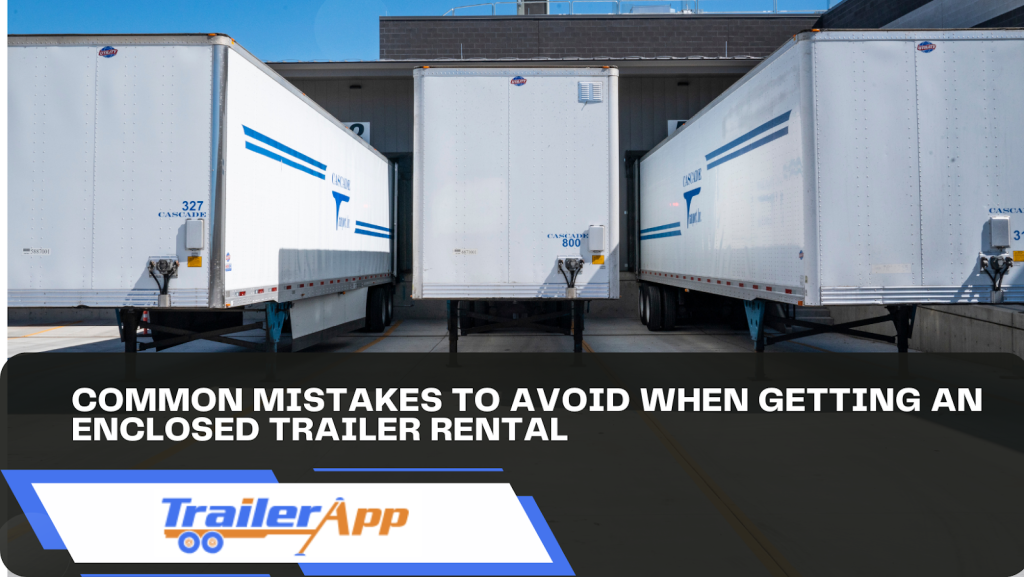Have you ever rented an enclosed trailer and realized too late that you picked the wrong size or forgot to check the rental terms? You’re not alone.
Enclosed trailer rentals are a convenient and secure way to transport cargo, whether you’re moving, hauling equipment, or making deliveries. With rental costs ranging from $70 to $150 per day—sometimes as low as $50 or as high as $300, depending on the trailer size and duration—it’s important to make the right choices to get the best value.
However, many renters make common mistakes, such as underestimating space, selecting the wrong hitch, or overlooking key details in the enclosed trailer rental agreement. These missteps can lead to unexpected costs, safety risks, and wasted time.
This guide will help you avoid these pitfalls and make the most of your rental. Whether you’re searching for enclosed trailer rentals near me or planning your next move, knowing what to watch out for will save you hassle and money.
Underestimating the Space You Need
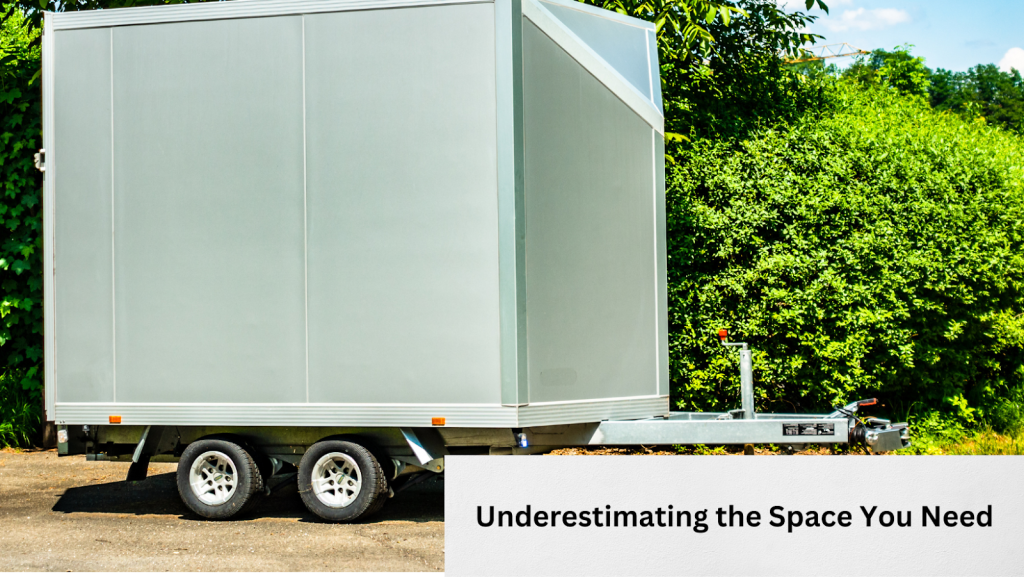
Choosing a trailer that’s too small can lead to multiple trips, unsafe loading, or damage to your cargo. It’s crucial to estimate the right size based on what you’re hauling.
Here’s a quick guide to choosing the right enclosed trailer size:
| Cargo Type | Recommended Size | Estimated Rental Cost (per Day) | Best For |
| Furniture & Household | 6×12 or 7×14 | $50–$100 | Moving boxes, furniture, and appliances |
| Motorcycles & ATVs | 5×10 or 6×12 | $40–$80 | One or two motorcycles or small ATVs |
| Construction Materials | 7×18 or 8.5×24 | $70–$150 | Lumber, drywall, heavy equipment |
| Vehicles | 8.5×20+ | $100–$200 | Transporting cars |
| Recreational Gear | 8.5×28 | $150–$300 | Boats, jet skis, bulky sports gear |
| Palletized Goods | 7×14+ | $70–$120 | Businesses moving products |
Tips to Avoid This Mistake:
- Measure your cargo to ensure it fits before renting.
- Check weight limits to match your tow vehicle’s capacity.
- Size up if unsure to prevent last-minute issues.
By planning ahead, you’ll avoid unnecessary costs and ensure a hassle-free rental experience.
Choosing the Wrong Hitch and Tow Vehicle
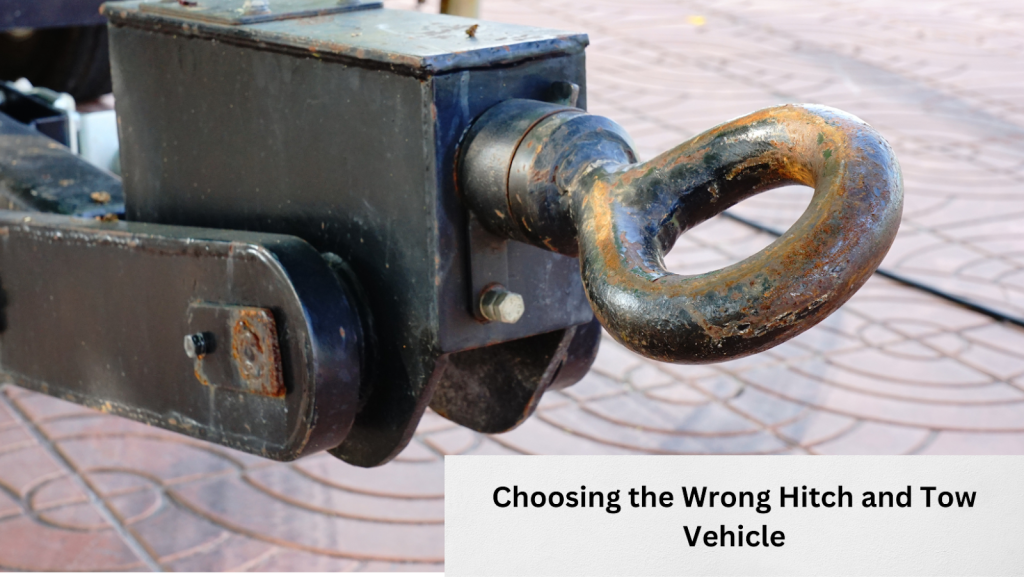
Selecting the right hitch and tow vehicle is critical for a safe and efficient enclosed trailer rental experience. Mismatched equipment can lead to unstable towing, excessive strain on your vehicle, or even legal violations if weight limits are exceeded.
Trailer hitches are categorized by Class I to Class V, each designed for different towing capacities:
| Hitch Class | Max Trailer Weight | Typical Applications |
| Class I | Up to 2,000 lbs | Small utility trailers, bike racks |
| Class II | Up to 3,500 lbs | Single-axle enclosed trailers |
| Class III | Up to 8,000 lbs | Mid-size cargo trailers, small car haulers |
| Class IV | Up to 10,000 lbs | Large enclosed trailers, equipment haulers |
| Class V | Over 12,000 lbs | Heavy-duty vehicle transport, commercial loads |
For most enclosed trailer rentals, a Class III or Class IV hitch is recommended. Ensure your vehicle’s hitch receiver matches the trailer’s coupler size—typically 2” or 2 5/16” balls for enclosed trailers.
Checking Your Vehicle’s Towing Capacity
Your tow vehicle must be rated to handle both the trailer’s weight and the cargo inside it. Check the manufacturer’s Gross Vehicle Weight Rating (GVWR) and Gross Combined Weight Rating (GCWR), which indicate the maximum allowable weight for the vehicle, trailer, and passengers combined.
To determine if your setup is safe:
- Locate your vehicle’s towing capacity in the owner’s manual.
- Verify the trailer’s GVWR (stamped on the trailer).
- Subtract the trailer’s empty weight from its GVWR to determine the usable payload.
- Ensure the total weight doesn’t exceed your vehicle’s GCWR.
Ignoring Weight Limits and Load Distribution
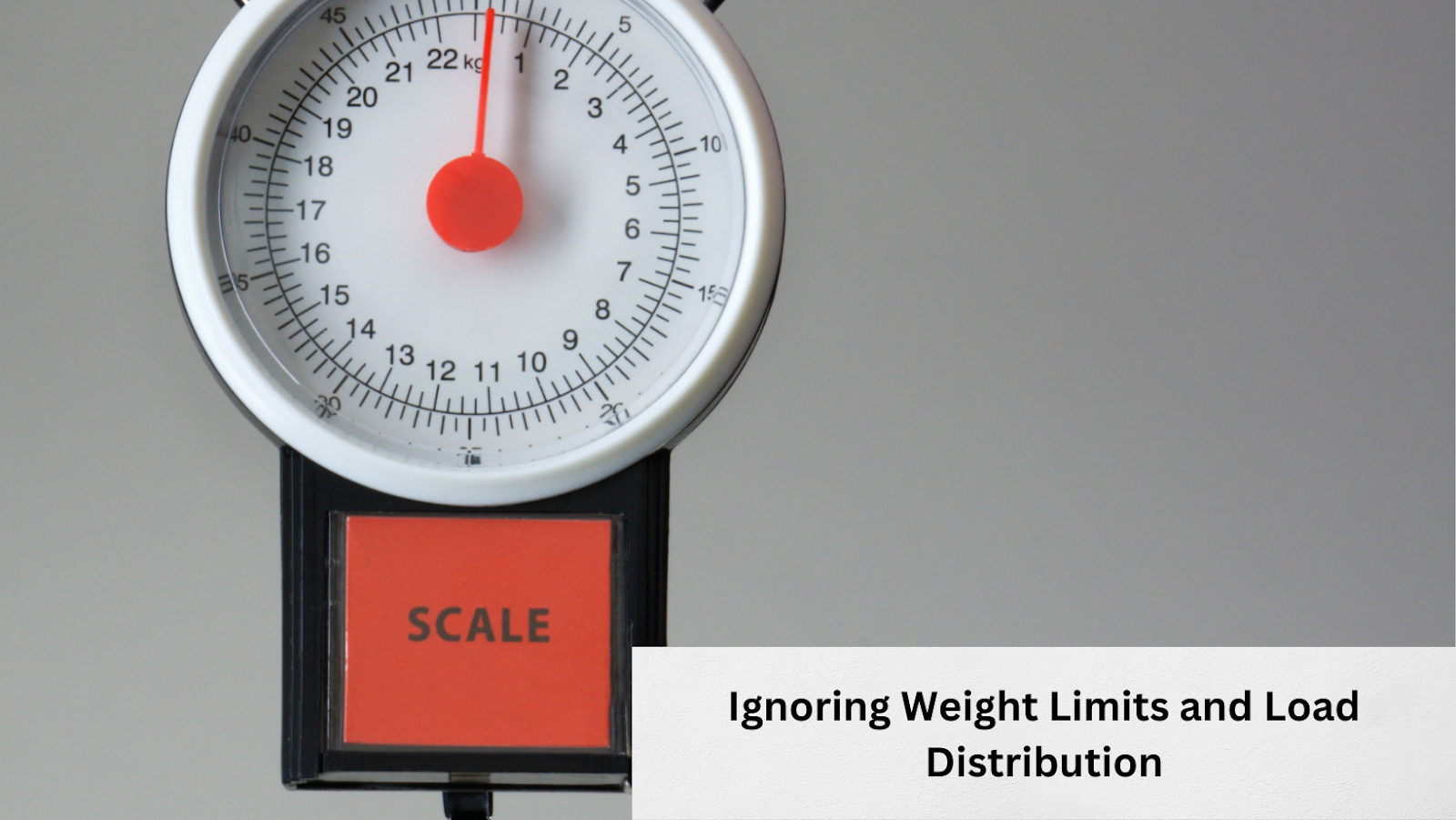
Overloading an enclosed trailer rental or placing cargo unevenly can lead to dangerous driving conditions. Exceeding weight limits puts stress on your tow vehicle, reduces braking efficiency, and increases the risk of losing control.
Risks of Overloading and Poor Load Distribution:
- Trailer sway and instability – Too much weight at the rear can cause the trailer to fishtail, especially at high speeds.
- Brake failure and longer stopping distances – Overloading makes it harder for your vehicle to slow down, increasing accident risk.
- Damage to your tow vehicle – Excess weight can strain the engine, transmission, and suspension.
- Legal penalties and rental violations – Exceeding weight limits may result in fines or void your rental agreement.
To tow safely, always check the trailer’s Gross Vehicle Weight Rating (GVWR), distribute 60% of the cargo in the front half, and secure everything properly. Ignoring these basics can turn a simple rental into a costly and dangerous mistake.
Forgetting to Check Rental Policies and Requirements
Renting an enclosed trailer is more than just picking one up and hitting the road. Overlooking key rental policies can lead to unexpected fees, denied rentals, or liability issues. Before signing an enclosed trailer rental agreement, carefully review the terms to avoid surprises.
Key Rental Terms to Check:
- Mileage restrictions – Some rentals have daily mileage limits, with extra charges for exceeding them.
- Return policies – Late returns may result in hefty fees, so confirm the deadline and drop-off location.
- Insurance coverage – Not all rental companies provide coverage; check if your auto insurance extends to the trailer.
- Deposit requirements – Most rentals require a security deposit, which may vary based on trailer size and rental duration.
- Towing requirements – Some companies have strict rules on tow vehicle specifications, including hitch class and brake controllers.
By understanding these terms in advance, you can avoid unnecessary costs and ensure a hassle-free rental experience. Always ask questions before signing the enclosed trailer rental agreement to prevent misunderstandings.
Not Securing the Cargo Properly
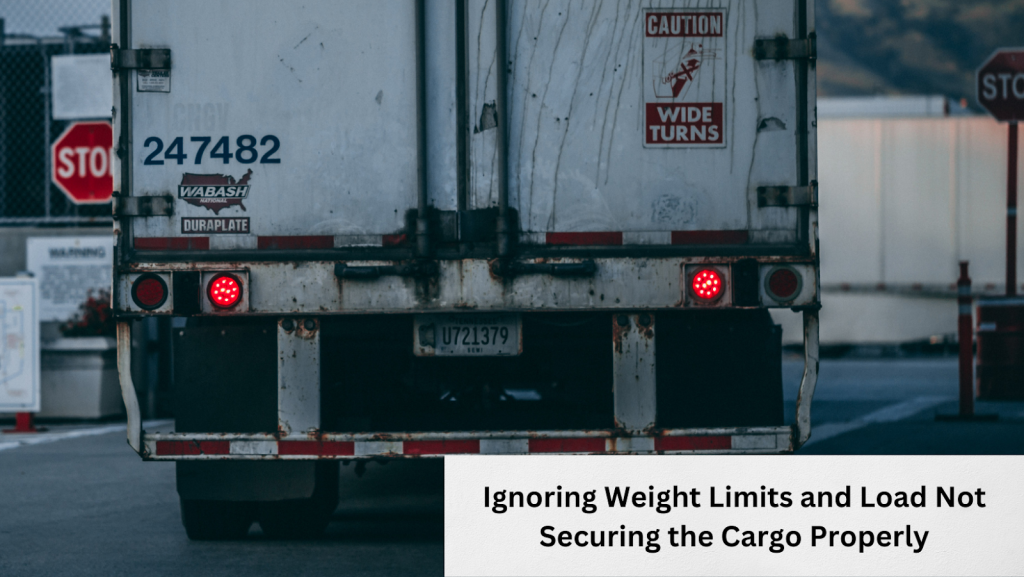
Improperly secured cargo in an enclosed trailer rental can cause serious problems. Items shifting during transit not only increase the risk of damage to your belongings but also affect the stability of your vehicle, leading to dangerous driving conditions.
Here’s how to secure the cargo properly:
- Use straps and tie-downs – Secure larger items by using heavy-duty straps to prevent shifting.
- Add padding or blankets – Cushion fragile items to reduce the risk of scratches or breakage.
- Place heavier items at the bottom – This lowers the center of gravity, helping to maintain stability and prevent swaying.
- Fill empty spaces – Use smaller items or packing materials to fill gaps and keep the load from moving.
By securing your cargo properly, you reduce the risk of accidents, protect your items, and ensure a smooth ride. Proper preparation makes all the difference when using an enclosed trailer rental. At TrailerApp.com, we offer a wide range of trailer parts and services to help trailer owners and users maintain their equipment in top condition.
Failing to Inspect the Trailer Before Driving Off
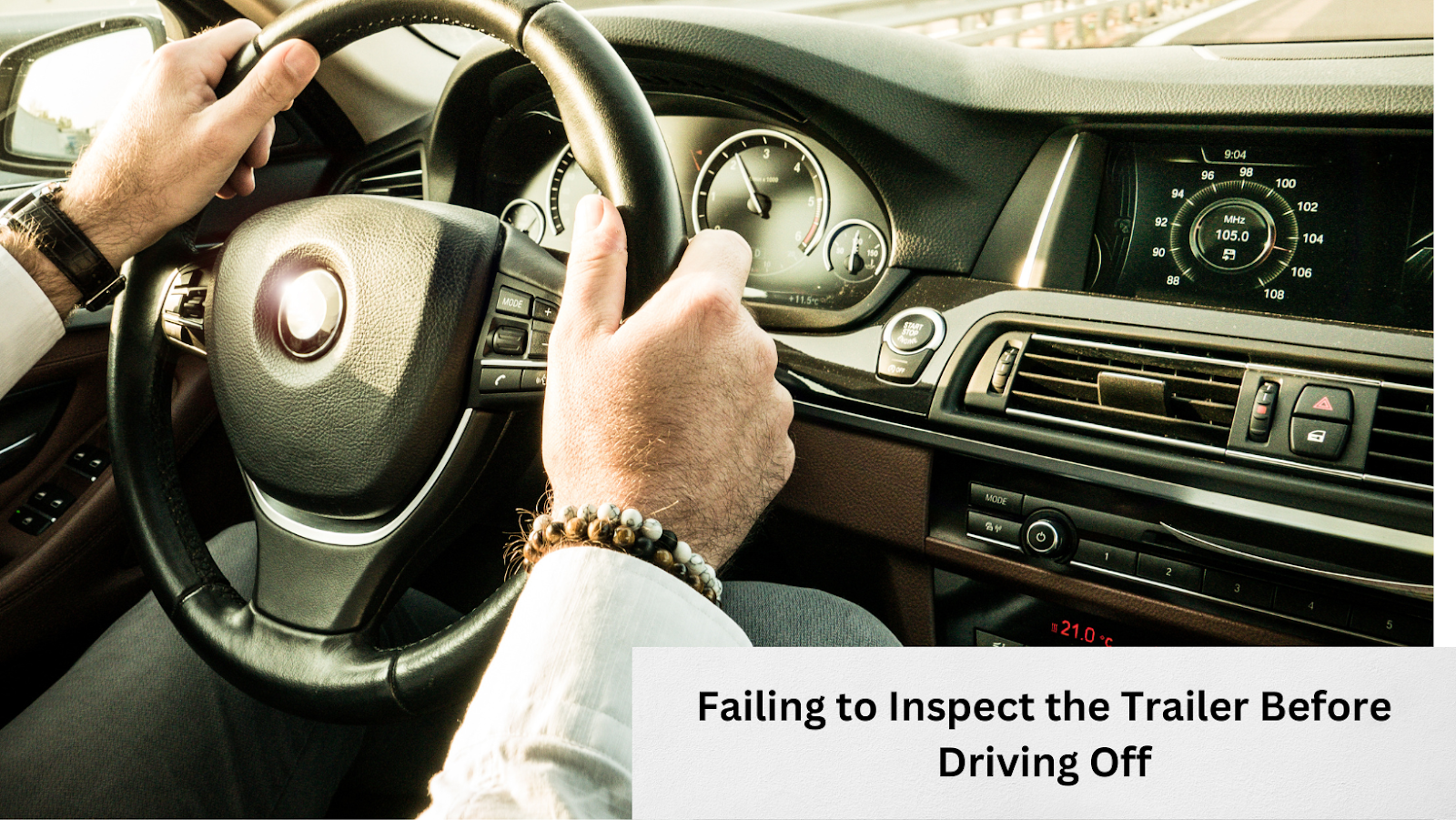
Before hitting the road with your enclosed trailer rental, it’s crucial to perform a thorough inspection. Skipping this step can lead to safety issues, potential accidents, and unexpected charges for damages you didn’t cause.
What to Check Before You Drive Off:
- Tires – Ensure they are properly inflated and free of visible damage to prevent blowouts.
- Lights and brakes – Test all lights (brake, tail, turn signals) and check the brakes to ensure they function properly.
- Locks and hitch – Verify that the trailer is securely hitched to your vehicle and all locks are working to avoid theft or detachment.
- Trailer door latch – Make sure the trailer door latches securely to prevent cargo from falling out during transit.
If you notice any issues, report them to the rental company immediately to avoid being held responsible for damages. A quick inspection can save you time, money, and a lot of hassle on the road.
FAQ Section
Q: How much stuff can fit in a 6×12 cargo trailer?
A: A 6×12 enclosed trailer typically holds about 2–3 rooms’ worth of furniture, or roughly 2,500 lbs of cargo. It’s perfect for moving household items, motorcycles, or business equipment.
Q: What is an enclosed trailer called?
A: An enclosed trailer is also known as a cargo trailer, box trailer, or covered trailer. It protects your items from the weather and keeps them secure during transport.
Q: How much can I fit in a 4×8 trailer?
A: A 4×8 enclosed trailer can hold small furniture, boxes, or about 1,500 lbs of cargo. It’s commonly used for personal moves, luggage transport, or hauling small equipment.
Q: What is the meaning of trailer rental?
A: Trailer rental refers to temporarily renting a trailer to transport goods, vehicles, or equipment. Rental companies offer a variety of trailer sizes for both short-term and long-term use.
Conclusion
Renting an enclosed trailer can be a convenient and efficient way to transport your goods, whether you’re moving, hauling equipment, or making deliveries. However, as we’ve highlighted, it’s easy to make mistakes that can lead to unnecessary costs, safety hazards, or a frustrating experience.
By avoiding common pitfalls like underestimating space, choosing the wrong hitch, neglecting weight limits, and overlooking rental policies, you’ll ensure a smooth and successful rental process. Remember, taking the time to inspect the trailer and properly secure your cargo will not only protect your belongings but also guarantee a safer journey.
At TrailerApp.com, we understand the importance of maintaining your trailer for maximum safety and performance. We offer a wide range of trailer parts and services to help both owners and users keep their equipment in top condition.
Whether you’re looking for the right trailer for your next move or need essential parts to ensure your trailer is in optimal working order!

